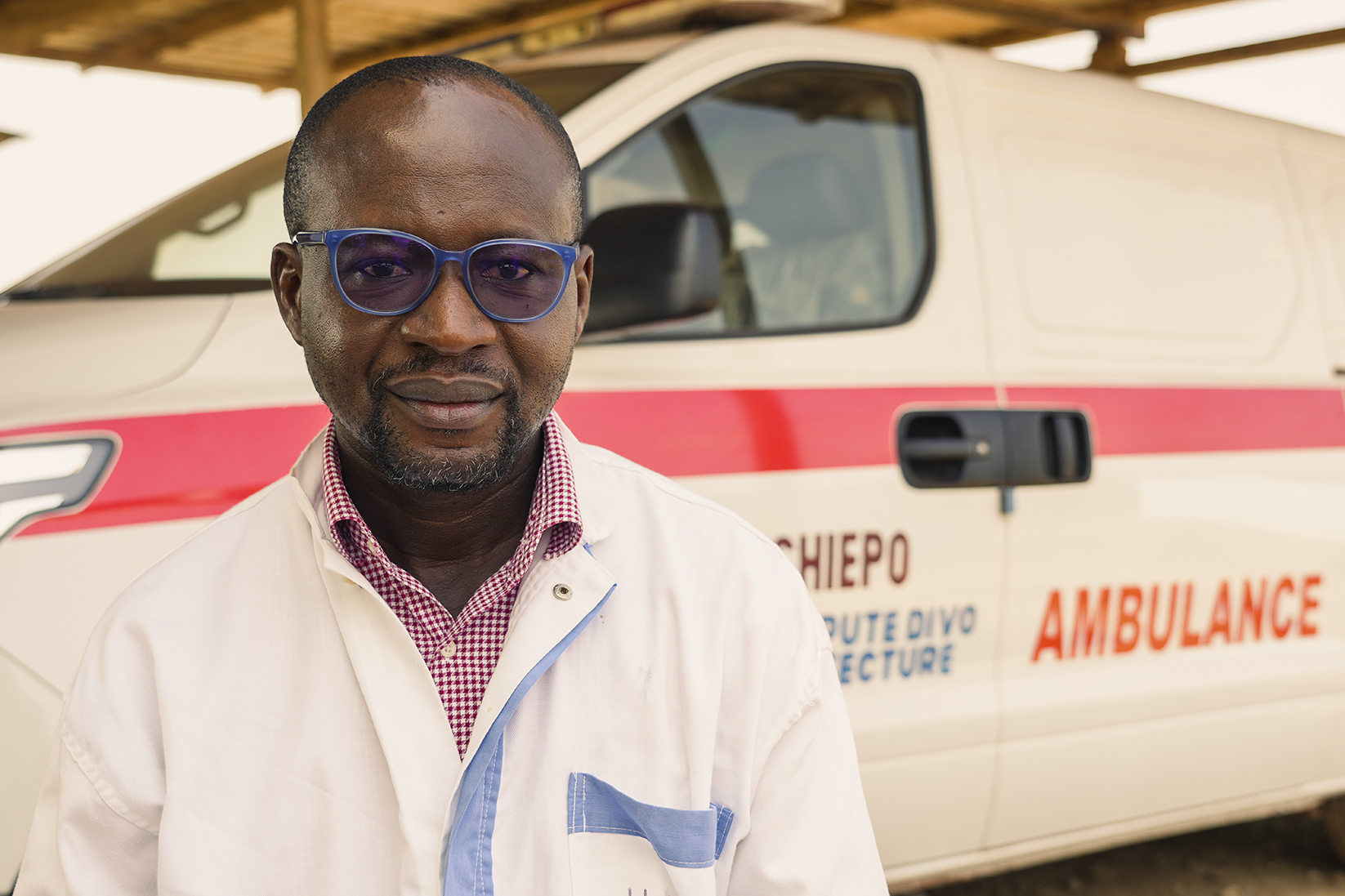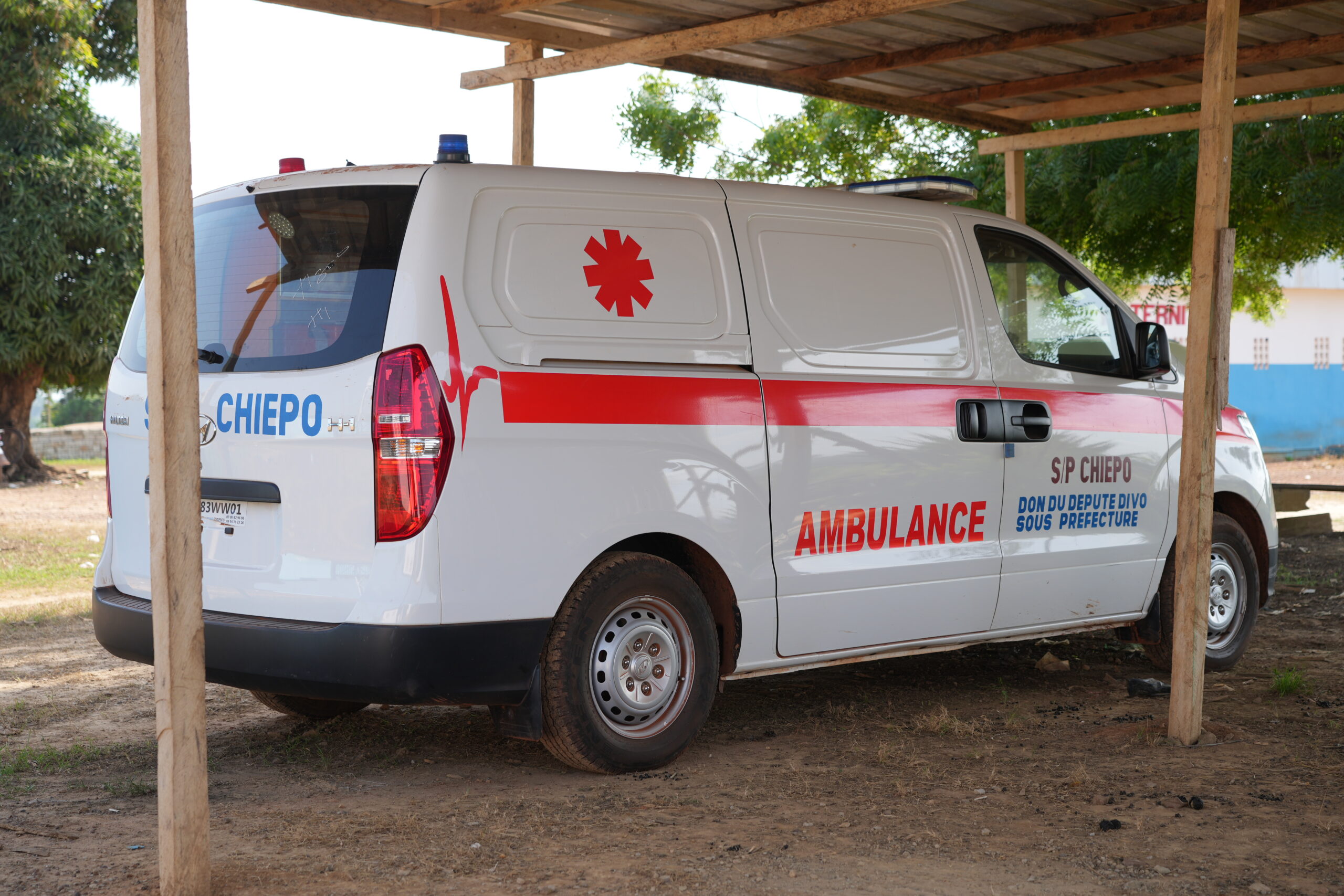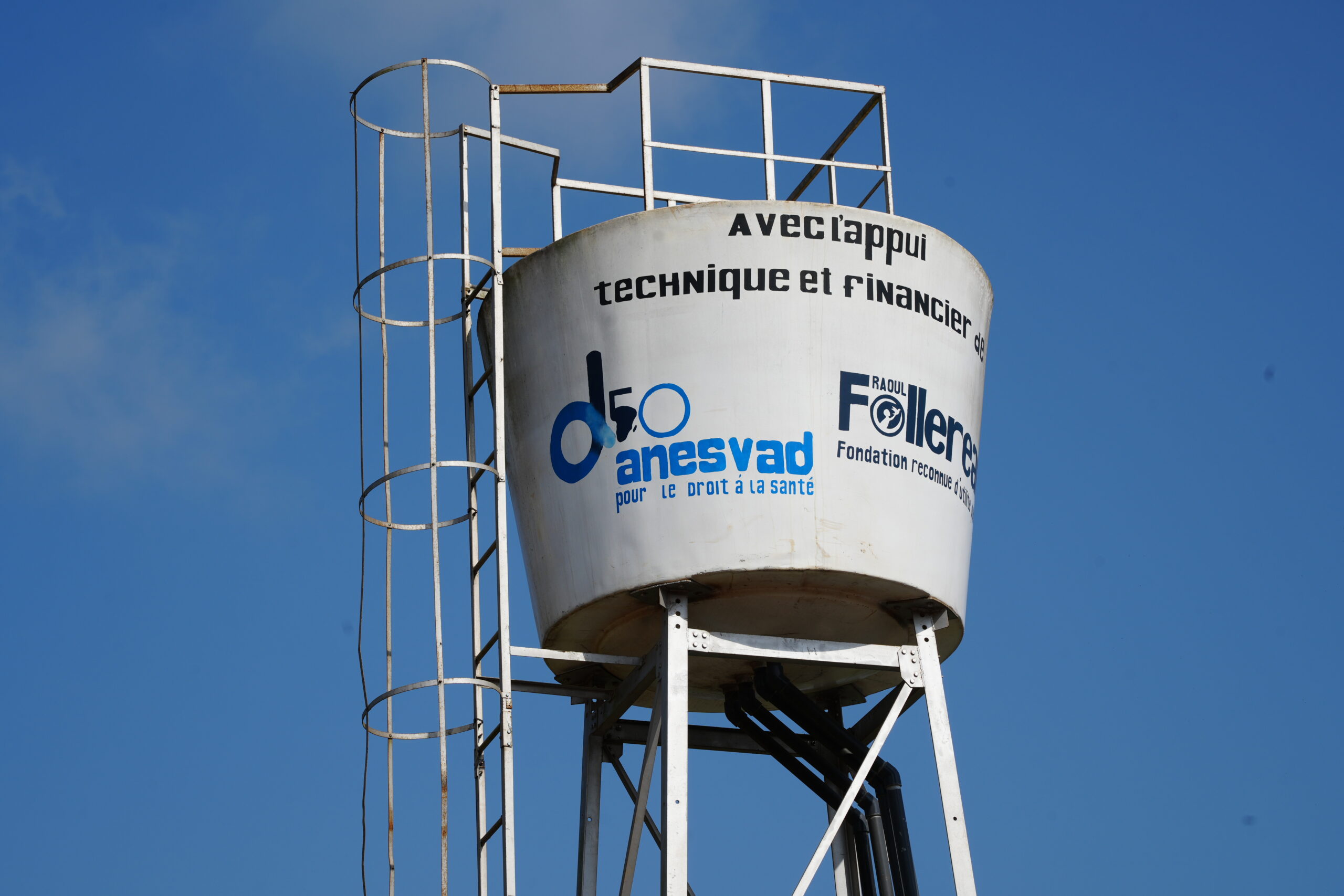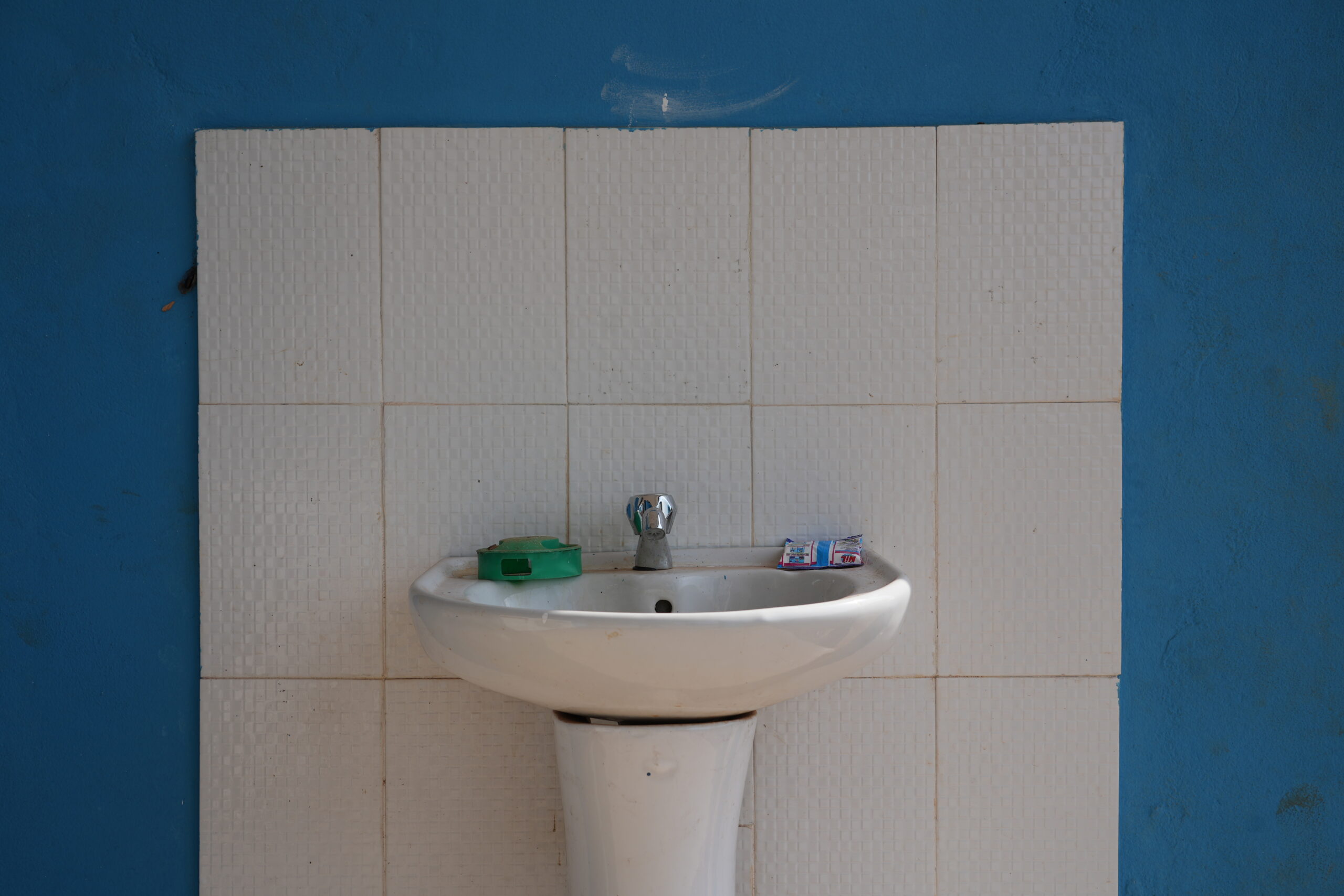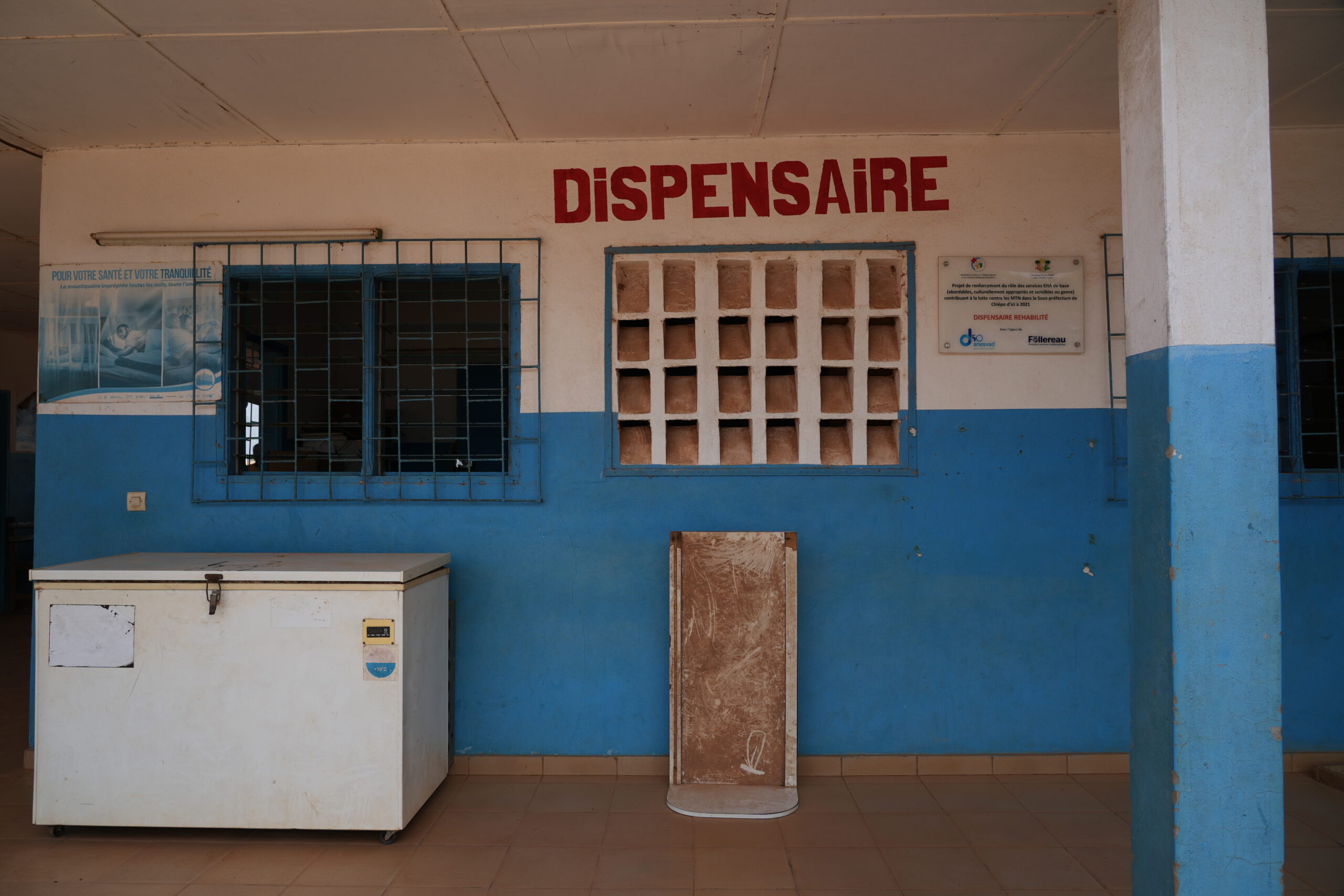Arsènne: head nurse at the Chièpo health centre, Côte d’Ivoire
"When health workers remain in a particular place for a long time, they get to know the community they are serving and a climate of trust is created between the two parties, which helps a lot when it comes to taking care of the sick"
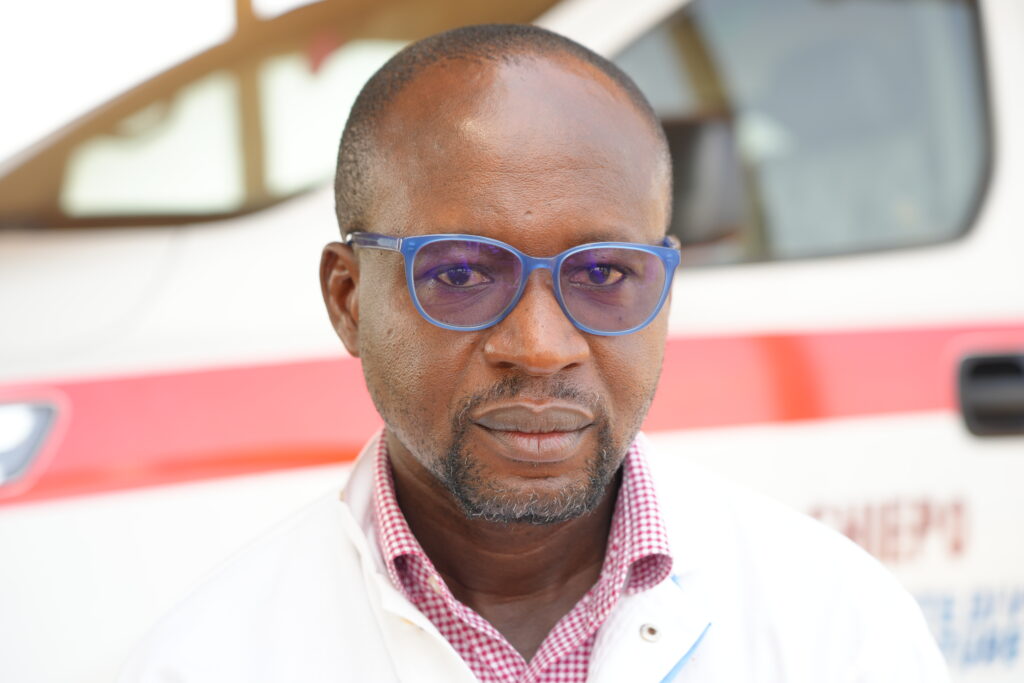
Introduction:
Arsènne qualified as a nurse in Côte d’Ivoire. He has been working at the health centre in Chièpo, a town in the south of the country, since 2019. He is now the head nurse at the centre and over the years has witnessed the improvements brought about due to the intervention project implemented jointly by the Anesvad and Raoul Follereau foundations.


Anesvad Foundation:
You arrived at this health centre before the implementation of the Anesvad Foundation and Raoul Follereau Foundation project. What were your first impressions of the place?
Arsènne:
The truth is that when I arrived here and saw the centre, I almost left. I swear. It was in a terrible state.
The maternity building looked nothing like the one you see now. It looked like anything but a health facility. There was electricity in the village, but not in the health centre. It was difficult to wash yourself. And it was the same when we needed to treat people.
Anesvad Foundation:
Of all the shortcomings you encountered in the health centre when you arrived, which did you see as the most significant?
Arsènne:
The lack of access to water. We didn’t even have toilets. As you know, to maintain sanitation, you shouldn’t defecate outside or urinate outside as it can lead to diseases. But if there are no toilets, what can you do? We had to make do. And when patients came and asked us where they could relieve themselves, we didn’t know where to send them.
There are rooms in both the dispensary and the maternity ward, but that’s where we told the women to go to relieve themselves. And the problem also affected us, because we couldn’t wash ourselves, and you know how important that is in a health facility, apart from the use of medicines.
Anesvad Foundation:
What impact did these working conditions have on the healthcare team?
Arsènne:
One of the problems with this centre was that staff kept leaving. I’ve been here the longest and it’s because of the working conditions in the past. When health workers remain in a particular place for a long time, they get to know the community they are serving.
The community also gets to know the health workers and a climate of trust is created between the two parties, which helps a lot when it comes to taking care of the sick, because we can’t treat someone we don’t know.
Anesvad Foundation:
Has the situation at the health centre improved since then?
Arsènne:
Yes, things finally changed when the Raoul Follereau Foundation and the Anesvad Foundation arrived. We got electricity and now we have air-conditioning in the offices. This wasn’t possible before.
We also now have taps and toilets in the different offices. We even have an incinerator, which is vital. If there isn’t a good waste management system, especially for infectious waste, a patient might show up with malaria, for example, and go home with a more serious illness.
Anesvad Foundation:
How was waste managed before the incinerator was installed?
Arsènne:
We had an incineration pit that was an environmental hazard, a hazard to ourselves and a hazard to those nearby, as well as to the children who came to play. However, thanks to the installation of the incinerator, that’s no longer the case.
It’s the only one of its kind in the entire region. We’re pleased that we can now handle the safety boxes and the waste on site. And the state has found that the incinerator is a better solution. They’re currently investigating whether the other health facilities in Divo can send their waste here to Chièpo to be treated.
Anesvad Foundation:
From your point of view, what is the most important aspect of the health centre intervention project?
Arsènne:
For me, it’s the fact that many factors have been taken into account to ensure the viability of the project, not only the upgrading of the centre and its equipment. The population has been organised to improve community participation. They’ve been educated as to the importance of hygiene and sanitation. Bins have been installed in the village so that waste can be collected and accumulated in a better location.
All of this has a real impact, because we were seeing numerous cases of gastroenteritis, caused by poor quality of life, poor hygiene and poor water quality.


